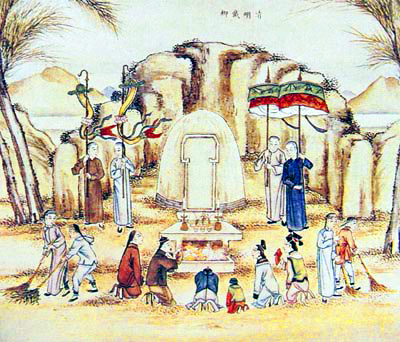 According to Chinese culture, Qingming Festival (known as Tomb Sweeping Day) is both a Chinese solar term and a festival which falls on the 105th day after the Winter solstice. It is said that Chinese traditional Qingming Festival originated from Zhou Dynasty and has enjoyed a history of more than 2500 years. The Tomb Sweeping day is an important day of sacrifice and sweeping the tomb of ancestors, which we call Shangfen. Since temperature rise gradually around the Tomb Sweeping Day, it is a good farming and outing time as well. The so-called Cold Food Festival/ Hanshi Festival have been combined with Qingming Festival into one. The customs on Qingming Festival (Tomb Sweeping Day) are plentiful and interesting, including tomb sweeping, hiking, riding on the swing, cuju and polo playing, willow shoots planting and wearing, etc.
According to Chinese culture, Qingming Festival (known as Tomb Sweeping Day) is both a Chinese solar term and a festival which falls on the 105th day after the Winter solstice. It is said that Chinese traditional Qingming Festival originated from Zhou Dynasty and has enjoyed a history of more than 2500 years. The Tomb Sweeping day is an important day of sacrifice and sweeping the tomb of ancestors, which we call Shangfen. Since temperature rise gradually around the Tomb Sweeping Day, it is a good farming and outing time as well. The so-called Cold Food Festival/ Hanshi Festival have been combined with Qingming Festival into one. The customs on Qingming Festival (Tomb Sweeping Day) are plentiful and interesting, including tomb sweeping, hiking, riding on the swing, cuju and polo playing, willow shoots planting and wearing, etc.
Cold Food Festival and Qingming Festival
Talking about Qingming Festival (Tomb Sweeping Day), many people will think of Jie Zitui, a character lived in Chinese ancient Spring and Autumn period, 2000 years ago. At that time, his master Chong'er (a prince of Jin State) had to leave his state and lived in a difficult situation and was nearly starve to death one day. As his accompany, Jie Zitui cut a piece of fresh from his own body to satisfy Chong'er. At last, Chong'er returned to Jin State and became the monarch (known as Wengong Monarch of Jin State). The people accompanied him in his hard time were greatly awarded. However, to take care of his mother, Jie Zitui declined Chong'er's award and refused to be an official. Jie Zitui and his mother then live in solitude with his mother in Mianshan. Wengong cannot do anything but burned the whole mountain. He thought Jie Zitui must gave up because he cared about his mother so much. Unfortunately, Jie Zitui and his mother were all burned to death. In memory of Jie Zitui, Wengong ordered that no fire shall be set on this day every year. And this day became the famous Cold Food Festival, which was firstly a day before Qingming Festival. Finally, these two festivals were combined into one.
Customs on Qingming Festival/Tomb Sweeping Festival
Tomb sweeping and sacrifice to ancestors
Tomb sweeping and sacrifice to ancestors have become a common custom on Qingming Festival since Tang Dynasty. Paper money is burned to the dead to convey the yearning of the living and sacrifices are offered to propitiate the departed.
Riding on the swing/ swing playing and Cuju
Swing is a seat for swinging on, hung from above on ropes or chains. And swing playing became poular gradually from the Northern and Southern Dynasties. In Yuan, Ming and Qing Dynasty of ancient China, Qingming Festival was even declared to be Swing Festival when swings would be set in the imperial palace to be played by empress, concubines and maids.
Ju is a kind of rubber ball, inside of which is stuffed with hairs. Cuju Game refers to kicking the ball by foot, which was said to be invented by Huangdi Emperor with the initial purpose to train warriors. And Cuju game was liked by people during Qingming Festival.
Hiking/Taqing
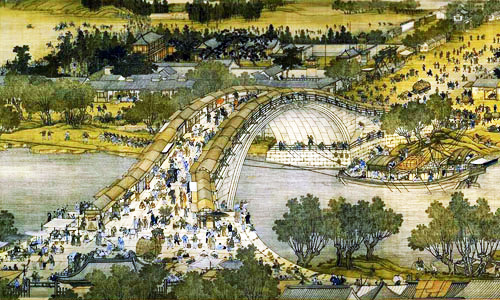
Spring comes and the nature is full of vigor around Qingming Festival. So it is a good time for hiking, which has been kept for long. Hiking in Chinese is also called Taqing and Chunyou (spring outing). The famous Riverside Scene at Qingming Festival (Qingming Shanghe Tu) by Zhang Zeduan of Song Dynasty just portrays a vivid bustling scene around Bianjing (present Kaifeng in Henan Province). More than 550 people, more than 50 livestock, more than 20 ships and more than 20 vehicles can be clearly seen on the picture. The grand occasion at that time can be imagined. However, the hiking festival in China differs in date in different places. Fujian District: February 2 in Chinese Lunar Calendar; Shaanxi District: March 3; Beijing and North China: May 5. Being a meaningful and healthy custom, hiking has been passed down throughout the ages.
Besides, there are other traditional customs in China during Qingming Festival/ Tomb Sweeping Day as well, such as cockfighting, silkworm blossom meeting, push-and-pull, willow shoots planting (sticking willow shoots into the earth) and wearing (wear the willow shoots to ward off evils), kite flying and tree planting.
--- By Haphine (VisitOurChina)
 According to Chinese culture, Qingming Festival (known as Tomb Sweeping Day) is both a Chinese solar term and a festival which falls on the 105th day after the Winter solstice. It is said that Chinese traditional Qingming Festival originated from Zhou Dynasty and has enjoyed a history of more than 2500 years. The Tomb Sweeping day is an important day of sacrifice and sweeping the tomb of ancestors, which we call Shangfen. Since temperature rise gradually around the Tomb Sweeping Day, it is a good farming and outing time as well. The so-called Cold Food Festival/ Hanshi Festival have been combined with Qingming Festival into one. The customs on Qingming Festival (Tomb Sweeping Day) are plentiful and interesting, including tomb sweeping, hiking, riding on the swing, cuju and polo playing, willow shoots planting and wearing, etc.
According to Chinese culture, Qingming Festival (known as Tomb Sweeping Day) is both a Chinese solar term and a festival which falls on the 105th day after the Winter solstice. It is said that Chinese traditional Qingming Festival originated from Zhou Dynasty and has enjoyed a history of more than 2500 years. The Tomb Sweeping day is an important day of sacrifice and sweeping the tomb of ancestors, which we call Shangfen. Since temperature rise gradually around the Tomb Sweeping Day, it is a good farming and outing time as well. The so-called Cold Food Festival/ Hanshi Festival have been combined with Qingming Festival into one. The customs on Qingming Festival (Tomb Sweeping Day) are plentiful and interesting, including tomb sweeping, hiking, riding on the swing, cuju and polo playing, willow shoots planting and wearing, etc.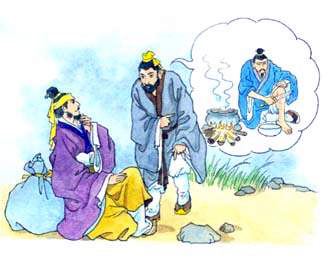
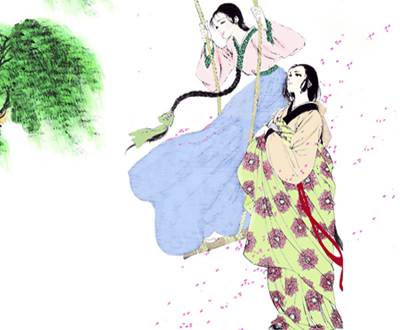
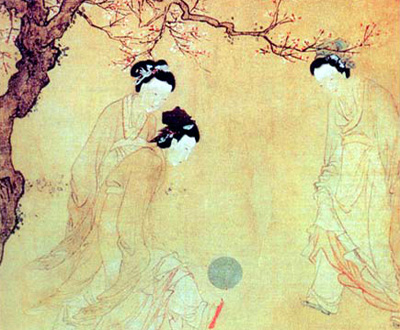

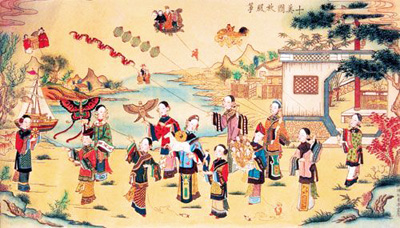





Interesting!